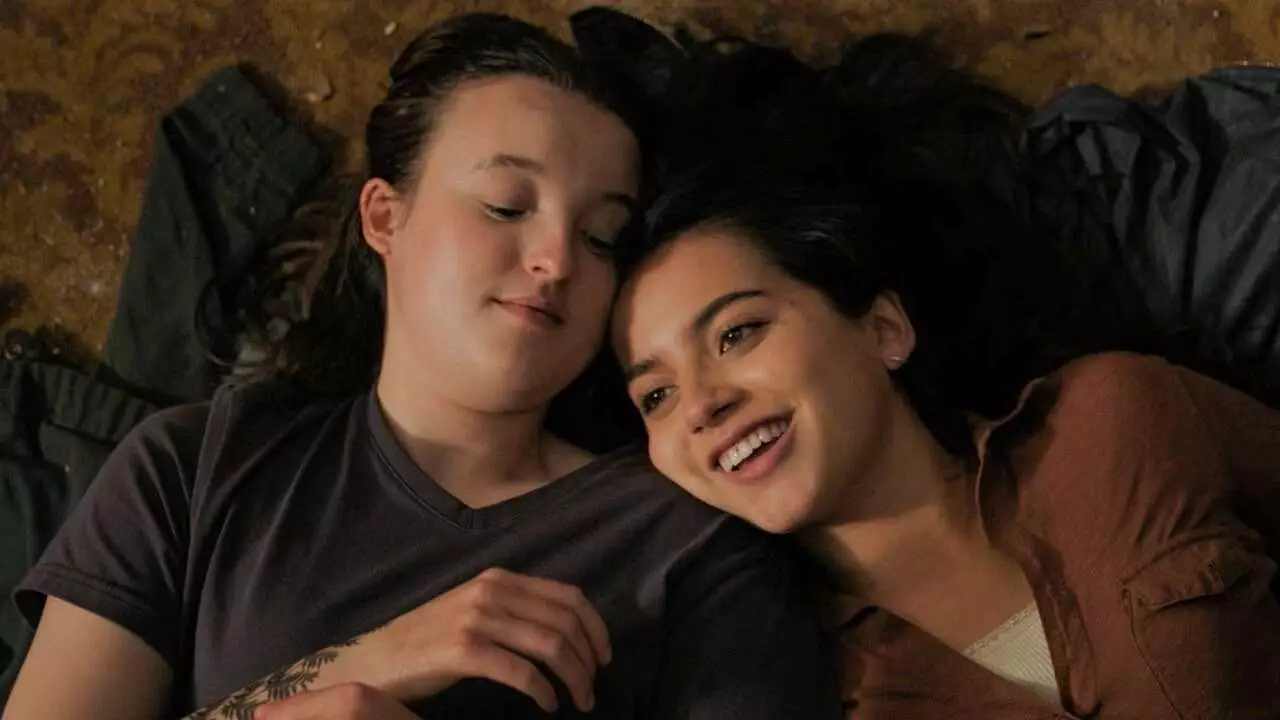HBO’s *The Last of Us* has elevated itself to become an essential cornerstone in the landscape of modern television, transcending the initial expectations set by its video game origins. Originally gifted to the world by Naughty Dog, the game presented a richly woven narrative filled with emotional depth and intricate character arcs. While many ardent fans of the video game anticipated a faithful recreation, the showrunners have opted to expand and reinterpret this world, offering novel viewpoints while staying true to the core themes of survival, loss, and—intriguingly—human connection amidst chaos.
As the series renews itself for a second season, we see an ambitious attempt to balance old narratives with new undertones, all while engaging a broader audience largely unfamiliar with the interactive storytelling of the original game. This melding of old and new creates a fertile ground for storytelling, allowing the characters not only to engage with their struggles against external threats but also to explore their internal landscapes in ways that resonate powerfully with contemporary social dynamics.
Cultural Critique and Polarizing Reception
What emerges as an unsettling trend is the narrative of discontent that often overshadows critical reception in the realm of fandoms. The series has recently been met with a curious dichotomy in audience response. On one end lies critical acclaim, as evidenced by its Metacritic scores reflecting positive critiques from a multitude of established reviewers. Yet, in stark contrast, user ratings demonstrate a troubling disdain driven by what some label “woke culture.”
This backlash indicates a growing schism between traditional storytelling values and evolving representations of character identities in media. Instead of engaging thoughtfully with the narrative structure, a segment of the audience resorts to blanket criticism devoid of substantive analysis. The backlash seems largely fixated on superficial elements rather than the significant storytelling choices that embody progressiveness and inclusiveness.
For instance, in Season 2’s pivotal moment showcasing Ellie (Bella Ramsey) and Dina (Isabel Merced) navigating the trials of love in a post-apocalyptic Seattle, the emotional depth of their relationship takes precedence over the backdrop of the ruined world around them. This portrayal is not merely about diversity for its own sake; rather, it serves as a poignant commentary on humanity’s capacity for affection, even amidst the bleakest of circumstances.
The Narrative Choices That Matter
A standout moment in the latest episode revolves around Ellie serenading Dina with A-ha’s “Take On Me,” an iconic pop culture reference that bridges the past with the present. This whimsical moment juxtaposed against the otherwise chaotic setting reinforces one of the central themes of the series: finding solace and joy in moments of despair. It resonates powerfully with viewers who may have experienced similar yearnings for connection, blurring the lines between escapism and reality.
Moreover, the evolving arc of Isaac Dixon (Geoffrey Wright) further showcases the series’ ambition to expand its universe and character complexity. The inclusion of his origin story, intertwined with scenes of brutal conflict and moral conundrums, elevates the stakes by reflecting on the choices that define humanity—even in the direst of situations. Such decisions retain a degree of moral ambiguity, as they compel viewers to question not just the characters’ choices, but also their own beliefs and values in the face of adversity.
Echoes of Love in a Ruined World
The rich thematic exploration of love—from platonic to romantic—is a pulsating heart throughout Season 2. As characters navigate their harrowing realities, they are continually drawn back to one another, asking the audience to examine the many forms love can take. Ellie’s and Dina’s emotional journey serves as both a comfort and a confrontation against the chaos surrounding them, reinforcing the idea that even in the direst of circumstances, love remains a beacon of hope.
This thematic insistence on love amid adversity challenges the traditional notions of heroism found in dystopian narratives. Instead of only focusing on physical survival, *The Last of Us* accentuates emotional survival as equally vital. In a world overwhelmed by existential threats, it is the connections we forge that may ultimately sustain us. The series expertly highlights these nuances, offering a narrative rich enough to provoke discourse while also managing to entertain and engage.
The intricacies of HBO’s *The Last of Us* Season 2 reveal both the challenges and triumphs of adaptation in today’s socio-cultural climate. As it continues to navigate the treacherous waters between artistic integrity and audience expectation, the show stands as a testament to the transformative power of storytelling, reminding us that even in the most desolate of worlds, the human spirit will always yearn for love.

